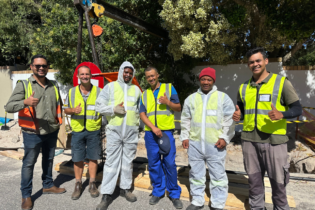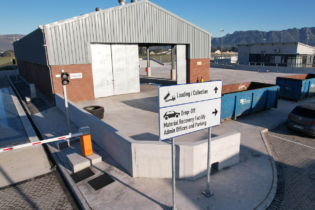Waste management is not a one-size-fits-all approach, as the needs and challenges vary between middle-class suburbanites and township residents. The City of Cape Town (CoCT), home to a diverse population spanning multiple income levels, as well as a hub for tourists and digital nomads, experiences these differences firsthand.
A growing concern in South Africa is the lack of service delivery and littering in poorer areas. This issue jeopardises the health and safety of South Africans, with the greatest impact on the country’s most vulnerable populations. It is difficult to care about proper disposal of waste when a person is surrounded by litter, and a lack of service to remove that litter.
This is why CoCT has the Green Litter Bin Waste Education and Awareness Project for informal settlements. It is a project that aims to combat the effects of and create awareness around illegal dumping.The Green Litter Bin Waste Education and Awareness Project
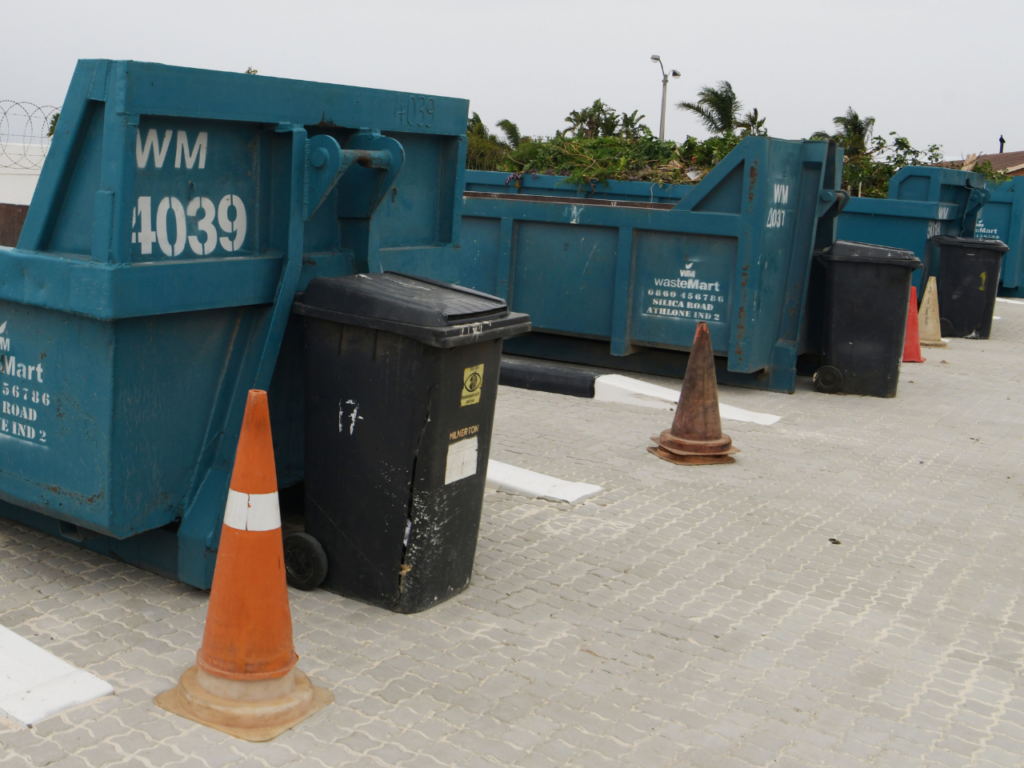
Welgelegen drop off facility
According to CoCT, “this project aims to reduce blockages in ablution facilities and littering in informal settlements by placing green bins outside of public toilets and standpipes. The project is part of a wider campaign that creates awareness about the negative effects of illegal dumping and disposal of inappropriate objects into the sewerage system.”Because informal settlements often spring up without official planning, they pose a risk of being “outside the system.” To combat this, the city includes them in the system. The Solid Waste Management Department of CoCT says, “In every informal settlement within CoCT’s borders, we have placed bins along the main thoroughfares and in central business districts.” To date the city has placed over 25 000 bins, each bin is serviced weekly by the Urban Waste Management Directorate’s Waste Services – cleansing department. While CoCT understands that simply placing bins does not prevent illegal dumping, they note that “Some communities have really made proper use of the bins, and the positive impact is felt within those communities.” A key component of this project is community engagement. CoCT states, “There are day-to-day waste awareness activities, through collaborative interventions such as community clean-ups, or at events such as concerts, sports games or school assembly presentations.”
Recycling in Cape Town
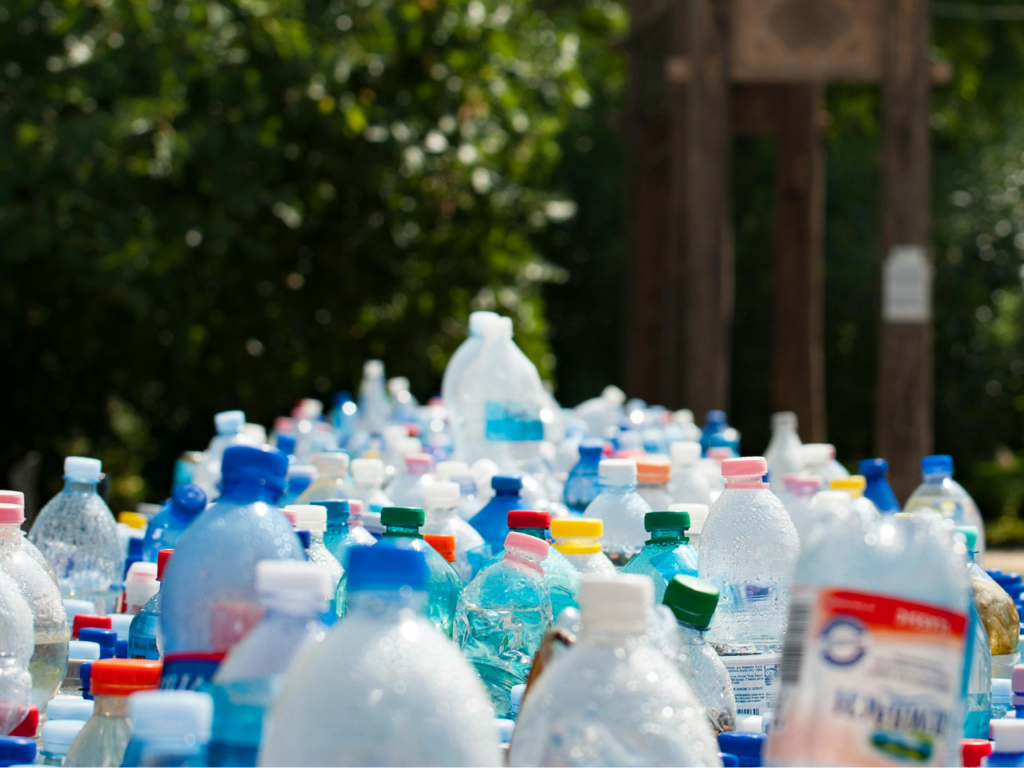
Being situated along the coast, plastic recycling is an important task for Cape Town.
CoCT states “Drop-off sites accept garden refuse, recycling, builders’ rubble, garage waste, white waste (appliances), e-waste, and oil (not all facilities).” They also impose a 1.5-tonne, three-times-a-day limit on vehicles as anything more than this is considered industrial.To ensure that the waste disposed of is non-hazardous and ensure compliance, each facility “records the waste on an access control register, and all waste is screened at the access control point. Recycling SMMEs responsible for sorting and resale of recovered material will also do further separation if needed.” Organic waste is accepted at all sites, and 15 of the 16 sites are “earmarked” for “chipping garden greens.”CoCT further says, “The City appoints a service provider for the chipping of garden waste and offsite beneficiation of the mulch generated through the chipping activities. Mulch can be used for composting, in the agriculture sector, as well as in nurseries.” The city details their recycling activities as follows, “The City appoints SMMEs for the recovery and sorting of recyclables at all drop-off sites. The contractors appointed are given access to the separated recyclables entering the site and can also recover any recyclables that may be present in other waste streams such as garage waste or e-waste. Recyclables are sorted into various categories (e.g., paper/wood/cardboard and subcategories thereof), and the stored in bale bags or baled for sale to the secondary market.” While the city expands their recycling efforts, they make provision for private recycling collectors who must register with the city. To become a recognised private recycling collector an organisation must draft an Integrated Waste Management (IWM) plan for approval by the City. To legally operate in Cape Town, the following must be included in their IWM:
- An assessment of the quantity and type of waste disposed.
- a description of the waste services required to store, collect, transport, and dispose of the waste.
- a plan to separate recyclable and non-recyclable material at the point of source;
- a waste minimisation plan.
- a pollution prevention plan.
- details of the potential environmental impact of the waste.
- the type or characteristics of environmentally sensitive waste.
- the targets for recovery of waste (minimisation, reuse, recycling).
- Plans to handle emergencies.
The Think Twice programme

The “Think Twice” separation at source initiative is a door-to-door recycling collection service that services over 200 000 Cape Town households.
CoCT goes to say, “With the commissioning of the strategically placed Kraaifontein Materials Recovery Facility in 2011, the service was significantly expanded in the areas surrounding this facility, to ensure efficient collection logistics.”This project can be seen on the City of Cape Town map viewer by toggling the layers.
Expanding efforts
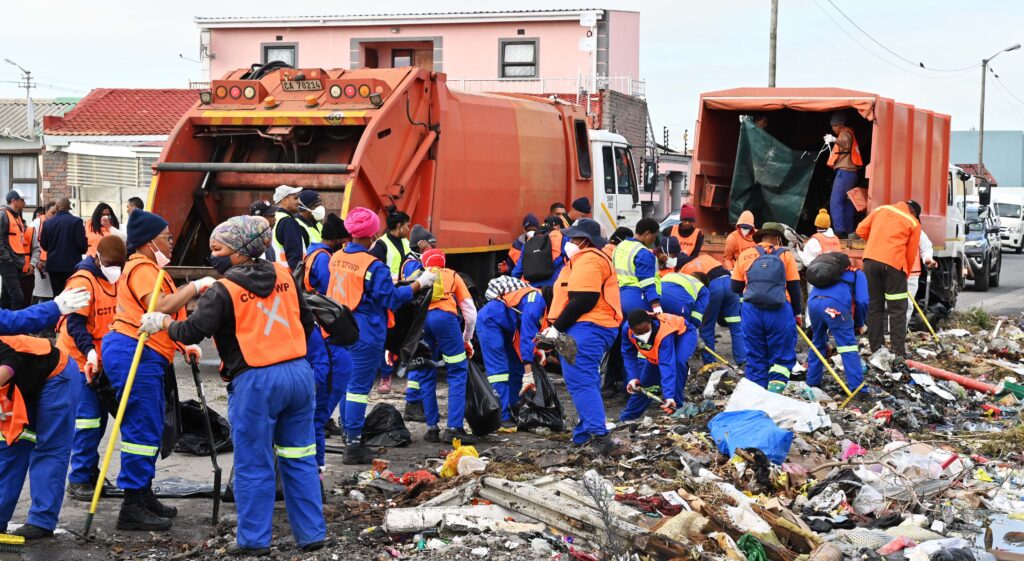
City cleanup efforts help combat the effects of illegal dumping, coupled with CoCT’s Green Bin project and the Swop Shop there is optimism about keeping high litter clean.
Industry
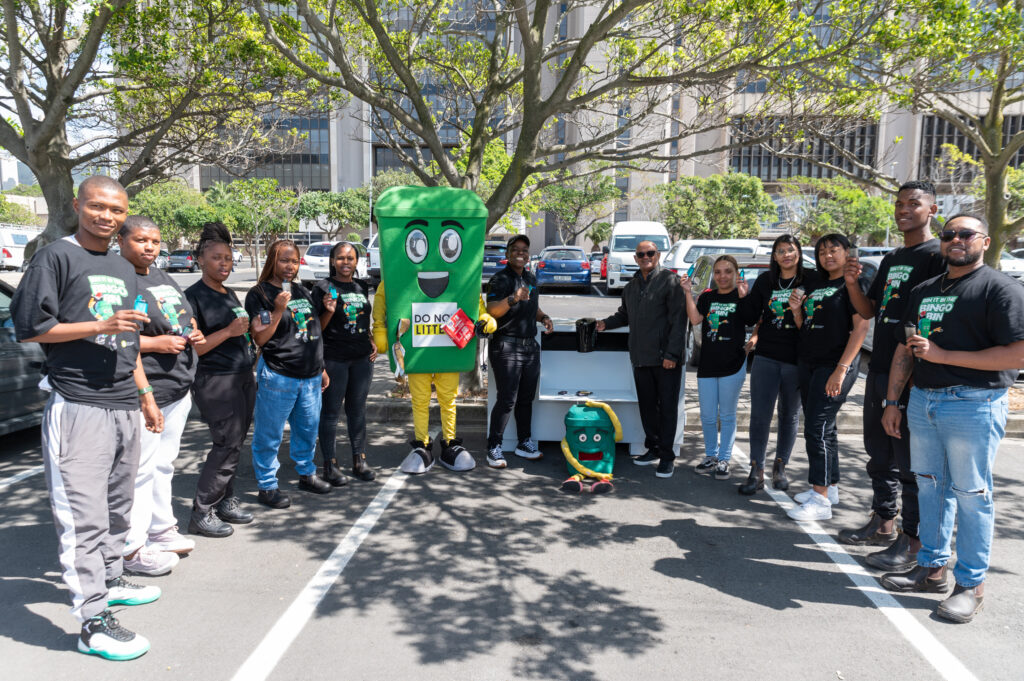
Recycling Day is one of the City’s initiatives that focuses on promoting recycling among the youth.
- Over 135 000 tonnes of waste diverted from landfill.
- The saving of greenhouse gas emissions is equivalent to 117 840 households.
- The generation of R150 million in additional revenue, cost savings, and investment.
- The creation of 398 jobs.





